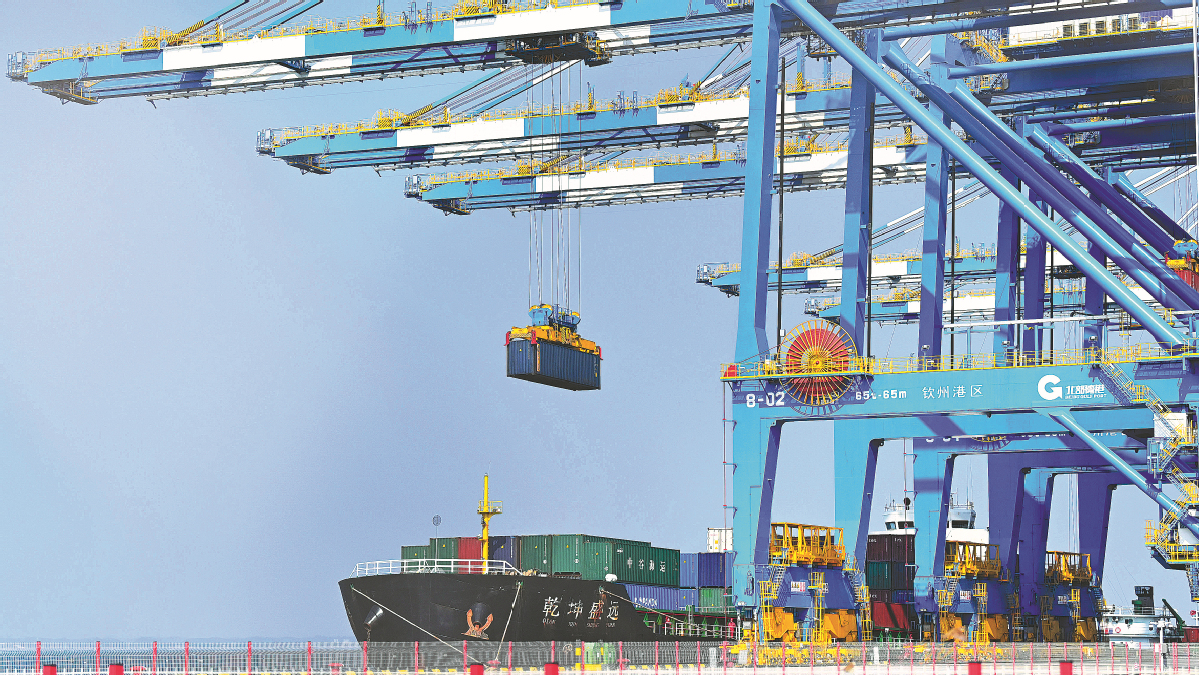Nation to advance building of high-quality overseas projects


China will further advance the construction of high-quality overseas projects and expand the network of free trade zones, as part of its efforts to increase the scale and enhance the quality of economic cooperation with countries involved in the Belt and Road Initiative, a senior official said on Wednesday.
Following the approach of consultation and collaboration for shared benefits, China's practical cooperation in economy and trade with Belt and Road countries has grown in scope and quality over the past decade and achieved win-win results, said Guo Tingting, vice-minister of commerce.
"China's supersized?market has provided important development opportunities for countries involved in the BRI, and goods originating in these countries now account for nearly half of China's total imports," Guo said in an interview with Xinhua News Agency, emphasizing that more than 110 Belt and Road countries count China as an important trade partner.
Data from the General Administration of Customs showed that China's imports and exports with Belt and Road countries increased from 6.46 trillion yuan ($885 billion) in 2013 to 13.76 trillion yuan last year.
Meanwhile, two-way investment between China and other countries involved in the BRI totaled more than $380 billion between 2013 and 2022, of which China's outward direct investment exceeded $240 billion, according to a white paper released by the State Council Information Office on Tuesday.
Guo said that China's trade and investment cooperation with Belt and Road countries has aided in the efficient allocation of resources, accelerated the integrated development of the industrial and supply chains, and injected more vitality into the creation of an open global economy.
According to a World Bank report, the BRI increased the trade of participating parties by 4.1 percent and attracted 5 percent more foreign investment. By 2030, the BRI will generate $1.6 trillion in global revenue each year, accounting for 1.3 percent of global GDP.
Going forward, China will better align with the policies, planning and industries of countries participating in the BRI, in order to further enhance infrastructure connectivity, the vice-minister of commerce said, underlining that infrastructure construction is an important area of the initiative.
In the past 10 years, China has signed contracts worth $2 trillion with Belt and Road countries and completed projects worth $1.3 trillion, covering a wide range of sectors including transportation, electricity, petrochemical, communication, water conservancy and wastewater treatment, Guo said.
"Belt and Road countries have benefited from these cooperation projects in terms of improving infrastructure development, promoting connectivity, enhancing people's well-being and strengthening their ability to develop," she said.
In the first eight months of this year, Chinese businesses inked new energy-saving and environmental protection projects in Belt and Road countries, with a contract value of $16 billion, a year-on-year increase of 22.2 percent, Guo said.
China will continue to expand its new areas of cooperation and guide enterprises to strengthen construction of green and other infrastructure projects, in a bid to help Belt and Road countries realize green and digital development, she said.
Reiterating China's resolve to further expand the network of high-standard free trade zones, Guo said the country will promote accession to the Comprehensive and Progressive Trans-Pacific Partnership Agreement and the Digital Economy Partnership Agreement in a proactive manner.
"Free trade agreements, as demonstrated by past practices, can effectively stabilize and deepen economic and trade cooperation among participants, promote enterprise development and enhance people's well-being," she said.
China will well implement the Regional Comprehensive Economic Partnership, which came into force for all 15 member economies in June, Guo said, adding that the country will advance the process of negotiating or upgrading FTAs with the Association of Southeast Asian Nations, the Gulf Cooperation Council and Serbia, Honduras, New Zealand and Peru, among others.
To date, China has signed FTAs with 28 countries and regions, 20 of which are those involved in the initiative.



































